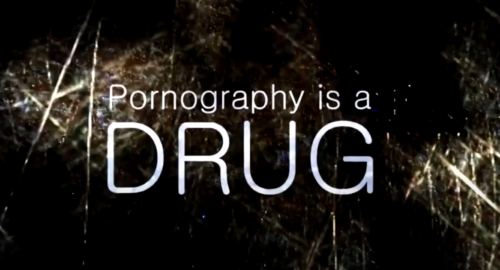
With each passing month, tensions continue to grow between the We The Parents-backed Brandywine school board and community members.
As part of a campaign against sexually explicit books in the school library, the Brandywine Board of Education showed a film called The Porn Pandemic during Monday night’s regular meeting. The film – which prompted a walkout from district students, parents, teachers and alumni – was used as evidence to argue why 41 books deemed to be “pornography” should be removed from Brandywine libraries.
The film was created by Family Watch International, a fundamentalist Christian nonprofit which describes the film as showing “how pornography viewing can lead to family breakdown, prostitution, sex trafficking and other crimes against women and children.” FWI opposes homosexuality, legal abortion, birth control and comprehensive sex education. The Southern Poverty Law Center classifies it as a hate group.
Board President Thomas Payne dismissed the “hate group” fact when brought up by board member Jessica Crouch, and used the film to make the case for suspending the books he feels are pornographic. He also described a specific sexual scene from the young adult novel Looking For Alaska, likening it to the visual pornography referred to in The Porn Pandemic.
“I’m really kind of confused as to how we don’t see this as pornographic situations in these books,” Payne said. “The parents do have permission to allow their kids to look at pornography if they want. But, it shouldn’t be taxpayer-funded, and nor should it be accessible in the Brandywine community schools. I mean, if we view it as pornography … why would we make it accessible within our middle school, [our] high school?”
Crouch said the district’s media center specialists have already determined that the books in question are not pornography, which was defined in a previous meeting as “printed or visual material containing the explicit description or display of sexual organs or activity, intended to stimulate erotic rather than aesthetic or emotional feelings.”
Payne responded by asking Crouch if she had read any of the books herself.
“I have read multiple books on this list,” Crouch said. “And none of them have caused me arousal, which is what your definition was. … I’m disappointed [the film] was shown. I think there could have been other avenues to get your point across.”
Board Secretary Angela Seastrom questioned the value of allowing books with sexually explicit passages to be accessible in schools. Superintendent Travis Walker responded:
“There are students out there who I would imagine could relate to some of the victims in the book,” Walker said. “They might not be comfortable going to a parent with that. They might not be comfortable going to a counselor with that, a social worker with that. But, when they read how somebody overcame abuse, to that one student that could be of educational benefit. Regardless of educational benefit, my concern is the legal ramifications in protecting the district.”
Walker said the media center already has a procedure in place to allow parents to decide whether their student should be allowed to access particular books, and there is also a screening process in place for each district.
Payne maintained his position.
“We know from studies upon studies upon studies, the impact of pornography,” Paine said. “It all starts with one picture, it all starts with just one piece of verbiage, and it goes from that to the next, just like any type of drug would. I think we’d be kidding ourselves if in fact we thought something different.”
During public comment, many who walked out explained why. Jasmine LaBine – a Brandywine alumnus, Western Michigan University professor and co-founder of opposition group Brandywine Alumni, Parents, and Educators for Educational Freedom – expressed her frustration with the board.
“I want to make it clear that the relevance of comparing pornography to literature without considering the context of these stories and the development of these characters – it’s apples and oranges,” LaBine said. “What is more frustrating to me is that you all seem to misunderstand how these meetings are supposed to work and what is appropriate. This is an open meeting amongst you all. Your job is not to pontificate to an audience of community members, which is clearly what you were trying to do. You were trying to argue your agenda using a piece of what is honestly propaganda by a source that is questionable. That is wholly inappropriate.”
LaBine is a communication professor with expertise in sex and gender, and explained that books containing sexual content can be educational for students.
“When we’re exposed to narratives that depict these situations, we learn language,” she said. “We learn how to have conversations about difficult things.”
Watch the Porn Pandemic film and the entire board meeting below. The board meeting discussion begins at 2:37:50:
By Ryan Yuenger
ryany@wsjm.com






